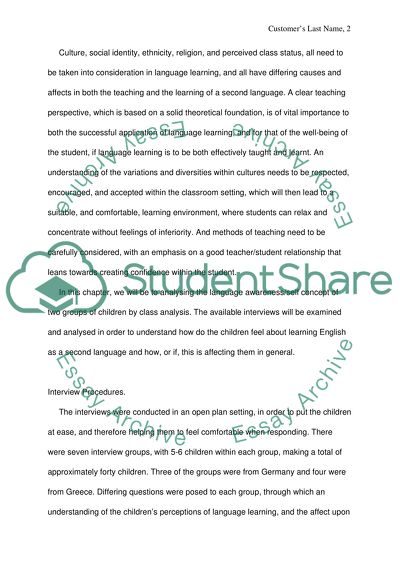Cite this document
(“Learning English as 2nd language Research Paper”, n.d.)
Retrieved de https://studentshare.org/english/1534309-learning-english-as-2nd-language
Retrieved de https://studentshare.org/english/1534309-learning-english-as-2nd-language
(Learning English As 2nd Language Research Paper)
https://studentshare.org/english/1534309-learning-english-as-2nd-language.
https://studentshare.org/english/1534309-learning-english-as-2nd-language.
“Learning English As 2nd Language Research Paper”, n.d. https://studentshare.org/english/1534309-learning-english-as-2nd-language.


